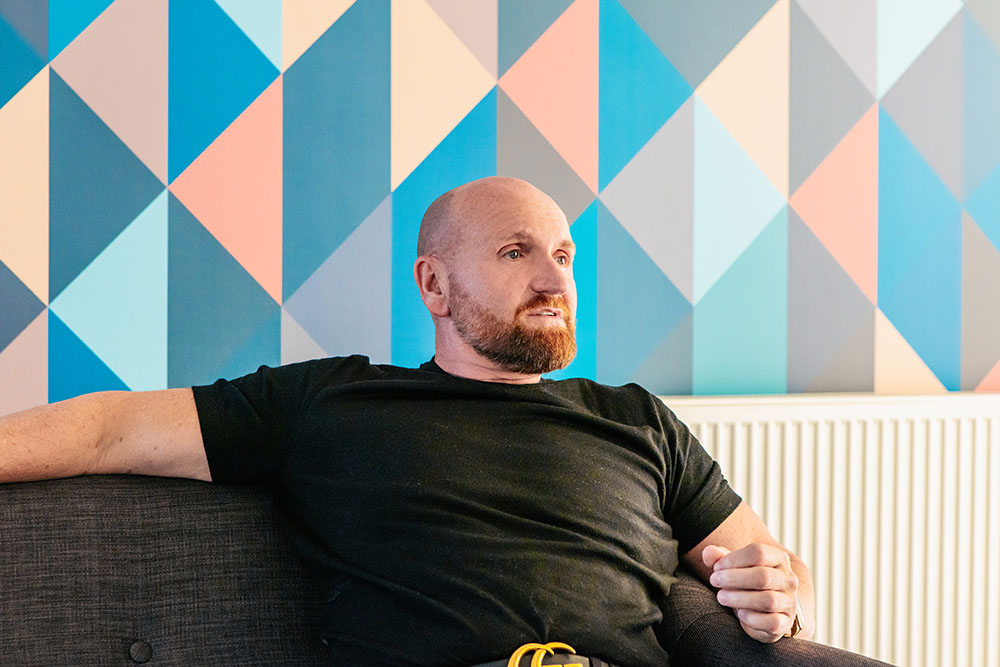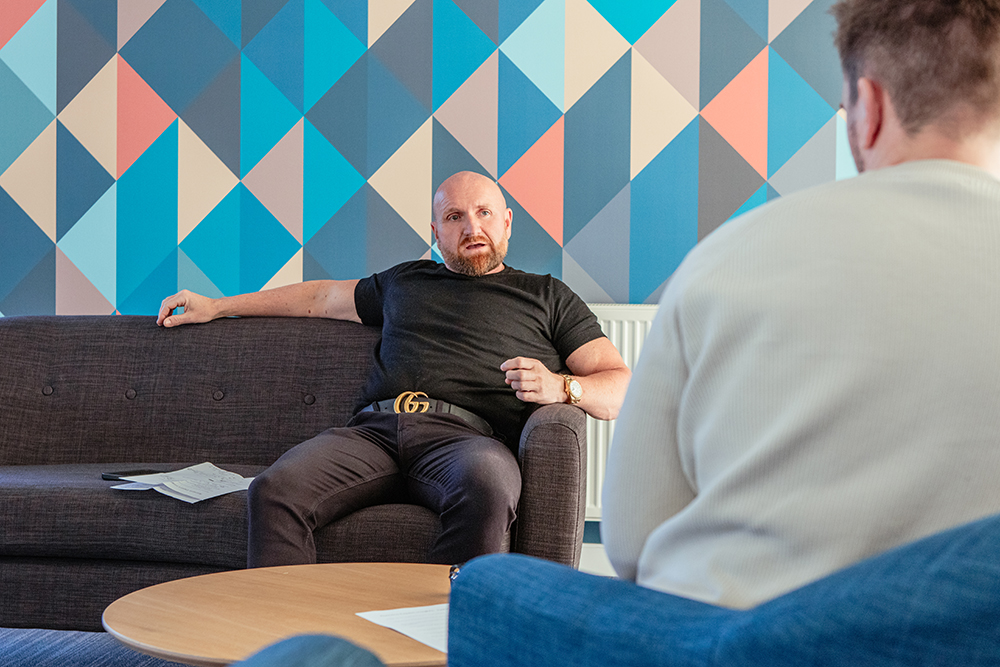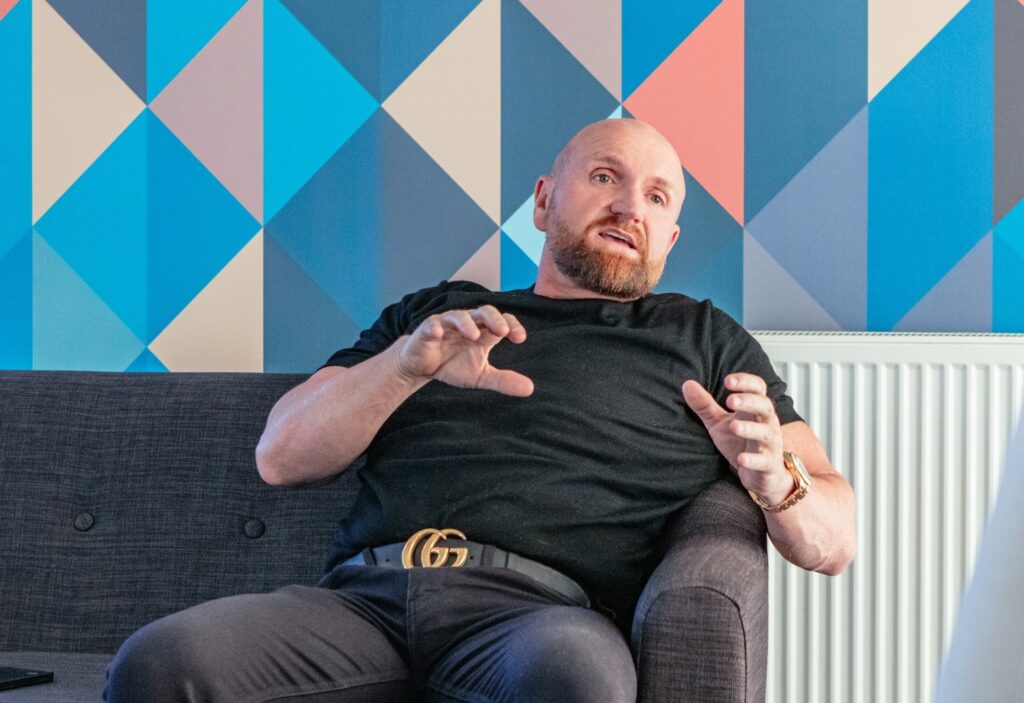As part of our 2023 insights initiative at Romero Insurance Brokers, we will be highlighting team leaders across the Romero Group. Over 12 months, The Romero Group will showcase 12 important figures, each from different departments and different disciplines.
Twelfth, and final, in our Insights Series is Justin Romero-Trigo. Justin is the CEO of Romero Insurance Brokers and NDML. He founded the business in 1997 and has led the company to three independent broker of the year awards. Justin has utilised his innate drive and passion for sales, growing the business as well as the team that assists him. He recounts his own pathway through the insurance landscape, what drives him, and what similar drives he likes to see in others when recruiting. He notes challenges and also reflects on what possibly motivates someone who is at the top of their game.

Please can you briefly recount your career pathway
When I finished college I had the chance to go to Leeds University to do an Economics degree. But a friend of mine recommended broking. At the time, Sedgwick James was one of the premier brokerages and were advertising an A-level trainee position, which I applied for. I spent some time in claims, broking, account handling, and then latterly working on new business with the sales team. Sedgwick’s sent me to London, to Lloyds, to Newcastle, and to Manchester – so I got a wide and varied start, it was a great training ground.
I then went on to work for Hart & Company, ran by Tony Hart, who was a talented and eccentric salesperson. They had major accounts including Persimmon Homes, Barratts, Tay’s – to say they only had a handful of staff, these were prestigious accounts. From Tony, l learned about his philosophy around broking, his attention to detail, and the importance of the claims function. Something that stuck with me was what the CEO of Persimmon Homes told Tony one day: “Since you’ve had our business, I’ve never gone to sleep worrying about insurance.” In the future I would always endeavour to make all my customers feel that same way.
After three years, Hart & Company gave me 5% shares, so I became a director at 26 years old. I had brought in a lot of new business and sales, so it was in recognition of my work. Unfortunately six months after I got the shares, Yorkshire Bank was taken over and they recalled our overdraft, meaning the company had to be put up for sale. This was a life lesson in debt management, which ultimately drove me to build our business with no debt. I gave my shares back – I could have stayed as the sales process had gone into limbo – but I decided to start up on my own. So, with a £5000 kitchen loan, no income, no days off for three years… the ability to build a business from the ground up was what spurred me on.
I set the business up in April 1997, and by November I’d employed Kieran Kennedy, who is still with us to this day. Kieran was fantastic at handling the amount of business we were getting, and after Kieran was Karl Milner, and then Victoria [Romero-Trigo]. As they say, the rest is history.
What are the most important skills you need to reach your goals?
I’m never 100% happy with anything, which is a trait that can be seen positively and negatively. I’m constantly driving for improvement, change, winning – it’s all built into the driving force that I’ve had for the last 28 years. It led me to want to run a company at 27. I thought I could do it bigger and better and more efficient than other people. Even though at that young tender age, I was driven to set up working for myself.
“I’m the type of individual who always wants a challenge, and probably the biggest challenge sometimes is myself.”
The drive is always there. For example: I’m 54 in February and I completed my first half marathon two years ago. I’ve never done it before and I ran it in 1:40:00. The year after I wanted to beat myself – I managed a 1:37:00. So I’ve promised myself this year that I’ll break the 1:35:00 mark. That’s just what I’m like, I need constant challenges, whether it’s business, work, life – it keeps me focussed. I think everyone wants that; to be constantly improving, wants to do the things that they enjoy.
I get asked; “Why are you still doing the sales Justin after 27 years?” The reality is I really enjoy doing the sales. I enjoy being the frontman for Romero. I enjoy being part of the team, picking up the big accounts, seeing the clients, and winning. I’m a client-man after all. There are far better, more adept, people doing far better jobs with insurers than me – such as Simon [Mabb, Managing Director]. His ability to manage the firm has created the platform for our growth. But with regards to clients and the sales process and the development of a vision, then that’s where my strengths are.
What is your process for developing your team?
When I’m building a team, I’m looking at every component. What I’ve always been good at is putting people in different sections of that team and allowing them to flourish.
Sometimes, when I’ve interviewed prospective people, I’ve said: “We are like a football team.” And by that I mean I play people in positions, but I also need to consider depth and strength of squad. Some people don’t want to be substitutes, but a team also needs a very strong substitutes bench. I need to be constantly tinkering round the edges, moving pieces, because a team could quickly go stale. Have a vision of your team 12 months in advance, bringing new players into the team. Competition is a very good element, and you need that in a business.
In the early days, when I had chance to go on holiday, I would have my team on a piece of paper. I’d be thinking: Who’s going to come in? Who’s going to improve our team? And by the time I’d come back from holiday I would have always worked out who I needed to improve that team.
I would like to think that over the years, we have worked our way up the leagues, and now we’re playing Champions League football.
What are your desired skills in an employee?
Listening and the ability to change is essential.
I love talent, I’m an admirer, I’m a magpie for talent. When you see someone capable and delivering something exceptional, I think: “I’ve got to get them in my team.” If they’ve got fantastic talent and you put them in the right position, then you’ll get the best out of them. So talent, the ability to adapt, and vision – and you’ve cracked it.
Another important quality is positivity. We all know people who are positive, and it impacts you when you are working with positive people. It also rubs off on clients. If as the CEO, you are coming into the office on a Monday morning being negative, you’ll throw that out to other people. As the leader, that’s not a great message. Simon’s really positive, Victoria’s really positive, all three of us are – we should be, because we are ground-breaking.
How do you successfully select and grow employees within your team?
I’ve recently seen some really good growth in people. When recruiting, I see what role needs fulfilling, and then I keep an eye out for people; I look at a person’s pedigree and read their detail to know if they can perform well. We’ve made some fantastic acquisitions in this way – we’ve got some real bright sparks.
I’ve seen major growth in our account directors. They are now pulling in major accounts for us. I like intelligent individuals who learn from others, developing as people as well as workers. I can see some very big futures.
When you are in my position, I’ve got to make the final decision whether to bring a person in. You can do your due diligence, but until you work with someone, you don’t know if they are truly good, bad or indifferent. Due diligence can help to quantify the decision, but it can always go the other way. It’s great when you get it right and people flourish.

How does being a CEO impact your role as a manager?
It doesn’t.
If I’m winning a big account, I know now that I need to let it go and let it be handled by the team. For our development programme I must trust in the structure below, trust in my teams that can take on clients and deliver a great service. I’ve got full trust in the team behind me as I’ve got some very good people and our depth of talent is impressive.
How do you communicate within your organisation?
We are transparent. I’ve got an open door policy, and I use our brand team to cascade that fact down to all colleagues.
Internally, I hold Account Executive forums once every three months. Though this year we are changing it up – starting January 2024, Simon [Mabb} and I are going to lead the meetings which will see a progression in our communication.
What’s next for Justin Romero-Trigo and how do you keep yourself motivated?
I read a lot. Could be from other CEOs or other people in the industry. Also, I learn from myself and my team, from experience. If we don’t pick a case up, I’ll have to go over it, recut it and go through the reasons we didn’t get it. I call it a post-mortem. I’ll try and learn from where it’s gone wrong to try and put things right.
In my own mind, the next position was for Romero Insurance Brokers to become a multinational player in the market. We took a look at our options, of which we had many, and decided an acquisition by AssuredPartners would see us going in the right direction.
It’s about constant improvement and change, within personal and business life, and family life. Work life balance is very important – say you start tinkering with one too much and don’t give time to the other it does begin to fall apart.
Is there a universal piece of advice you would give to other CEOs or managers?
Put a shift in. Don’t expect other people to do what you’re not willing to do.
Thank you to Justin for his honesty and insight into the mindset of a successful CEO. Justin is well respected not only in the industry, but also by his colleagues and staff. He is always appreciative and is quick to note when he sees a bright future in specific individuals, just as we see a bright future for the business as a whole.
That is the last instalment of our 12 month Expert Insight series. To read more of the insights series, see here.



